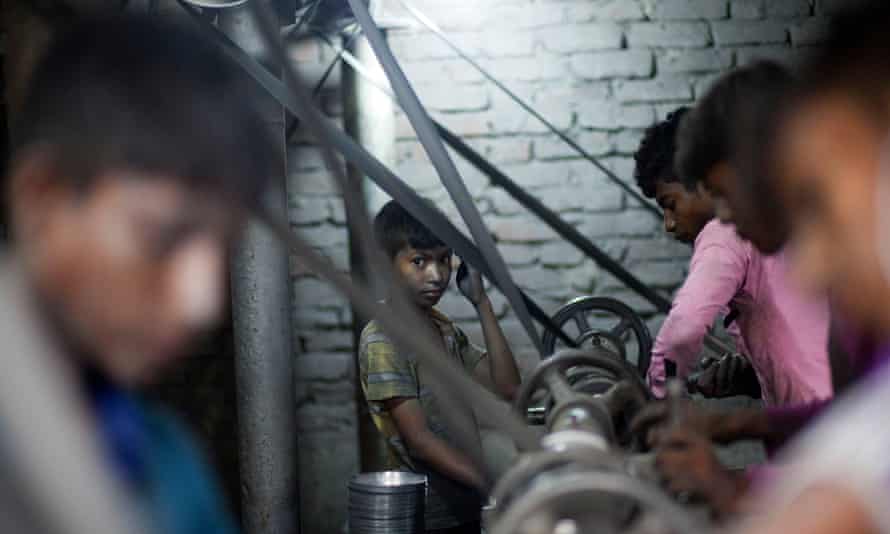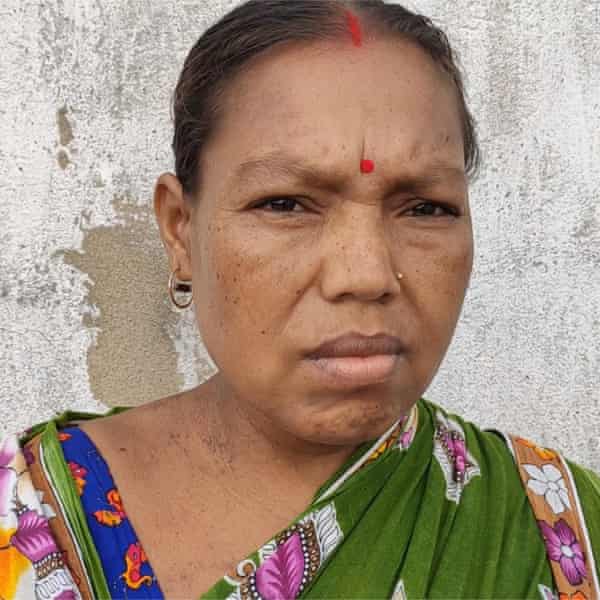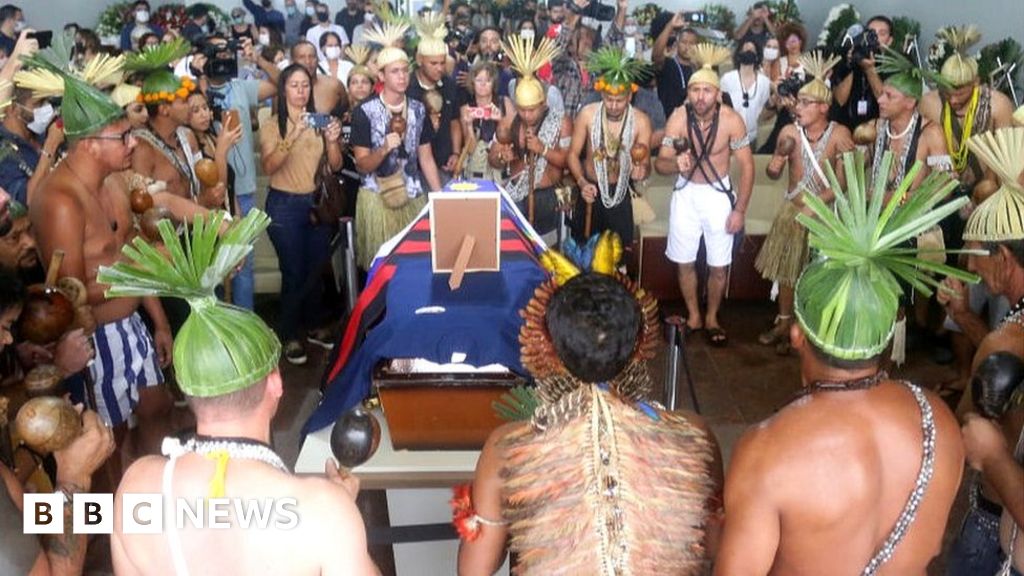[ad_1]
Hundreds of thousands of individuals pressured to go away their houses due to extreme drought and highly effective cyclones are vulnerable to trendy slavery and human trafficking over the approaching many years, a brand new report warns.
The local weather disaster and the rising frequency of maximum climate disasters together with floods, droughts and megafires are having a devastating impact on the livelihoods of individuals already dwelling in poverty and making them extra susceptible to slavery, in line with the report, revealed at this time.
Researchers from the Worldwide Institute for Surroundings and Growth (IIED) and Anti-Slavery Worldwide discovered that drought in northern Ghana had led younger women and men emigrate to main cities. Many ladies start working as porters and are vulnerable to trafficking, sexual exploitation and debt bondage – a type of trendy slavery by which employees are trapped in work and exploited to repay an enormous debt.

One girl, who migrated to Accra from northern Ghana, used to farm till the land was ruined by flooding and she or he was pressured to maneuver. For seven years she has labored as a porter (kayayie), carrying gadgets on her head.
She mentioned: “Working as a kayayie has not been simple for me. After I got here right here, I didn’t know something in regards to the work. I used to be advised that the lady offering our pans can even feed us and provides us lodging. Nevertheless, all my earnings go to her and solely generally will she give me a small a part of the cash I’ve earned.”
She dropped a buyer’s gadgets as soon as and needed to pay for the injury, which she couldn’t afford. The girl in cost paid up given that she repay her. She added: “I’ve been working endlessly and haven’t been capable of repay.”

Within the Sundarbans, on the border between India and Bangladesh, extreme cyclones have precipitated flooding within the delta, lowering the land out there for farming. With nations within the area tightening immigration restrictions, researchers discovered that smugglers and traffickers working within the disaster-prone area had been focusing on widows and males determined to cross the border to India to seek out employment and revenue. Trafficking victims had been typically pressured into arduous labour and prostitution, with some working in sweatshops alongside the border.
Fran Witt, a local weather change and trendy slavery adviser at Anti-Slavery Worldwide, mentioned: “Our analysis reveals the domino impact of local weather change on thousands and thousands of individuals’s lives. Excessive climate occasions contribute to environmental destruction, forcing folks to go away their houses and leaving them susceptible to trafficking, exploitation and slavery.”
The World Financial institution estimates that, by 2050, the influence of the local weather disaster, similar to poor crop yields, an absence of water and rising sea ranges, will pressure greater than 216 million folks throughout six areas, together with sub-Saharan Africa, south Asia and Latin America, from their houses.
The report is a stark warning to world leaders upfront of the Cop26 UN local weather summit in Glasgow in November and calls on them to verify efforts to deal with the local weather emergency additionally deal with trendy slavery. The report says labour and migrant rights abuses are disregardedin the pursuits of speedy financial progress and growth.
Ritu Bharadwaj, a researcher for the IIED, mentioned: “The world can’t proceed to show a blind eye to the pressured labour, trendy slavery and human trafficking that’s being fuelled by local weather change. Addressing these points must be half and parcel of worldwide plans to deal with local weather change.”
[ad_2]
Source link









